Here’s another throwback story. Last July, instead of lazing at a balmy beach resort, we went north to Denmark. Copenhagen is the place to be. Have you heard?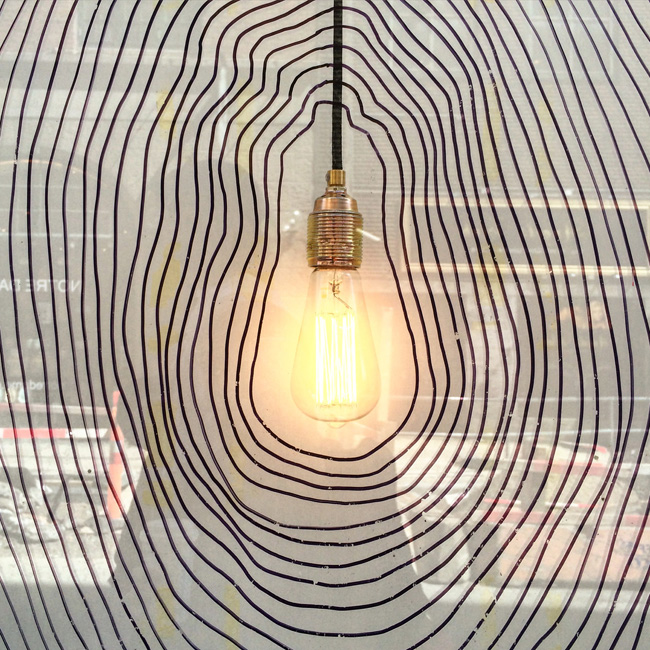
Cycle lanes, pared down design, new Nordic cuisine and experimental beer are everywhere. There’s something about the friendly modernity in Copenhagen. The quality of life you read about in every lifestyle article.
The city offers quiet residential neighborhoods, warehouses-turned-hangouts and lots of waterfront views. It’s also known for surprise rain showers. Don’t say I didn’t warn you.
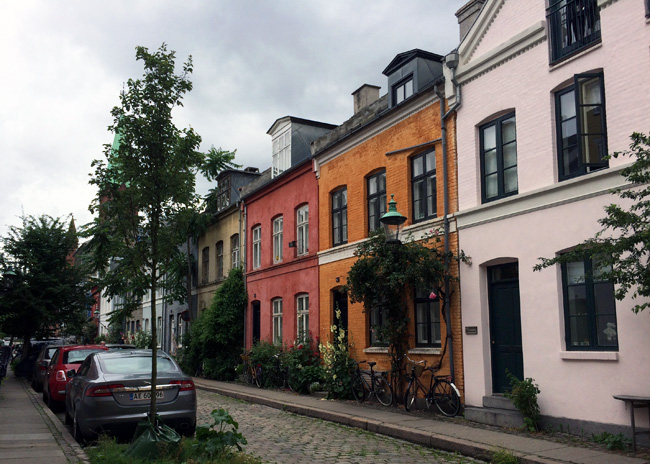
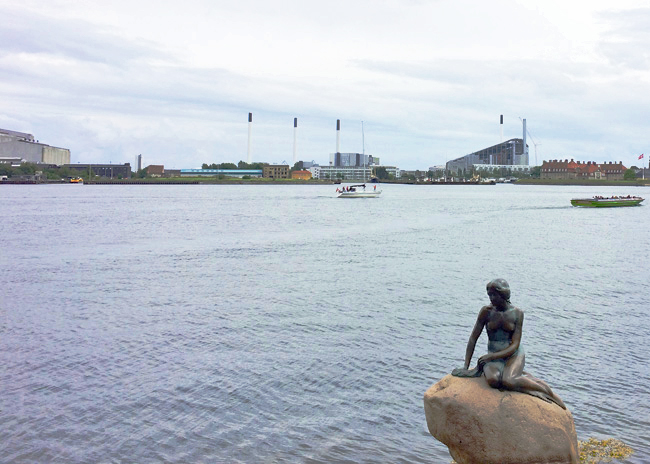
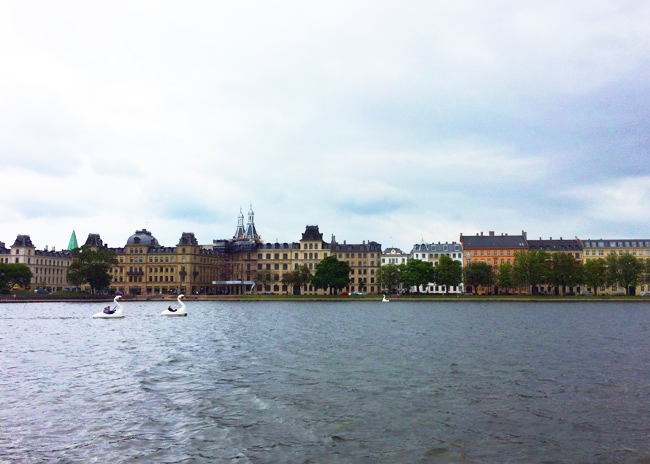
It’s an expensive place, like most Scandinavian cities, but if you come prepared for big city prices you won’t have too much sticker shock. Airbnb is big in Copenhagen, and compared to central Copenhagen hotel prices, generally a money saving option. The convenience of a ‘home’ away from home is the biggest draw. Somewhere to have breakfast, sleep in late if we want to, or come back early and watch old movies in the living room with bottles from the local beer shop.
Nørrebro – Northern Copenhagen
We stayed in the north of the city — Nørrebro — which is like the Hackney or Brooklyn of Copenhagen. Mostly trendy, occasionally rough around the edges. This is a good place to pretend you live in Copenhagen, even if only for a few days.
The former workers’ neighborhood has been home to anti-establishment (and WWII anti-Nazi) protests, immigrant communities trying to make a life in the Danish capital, and restauranteurs who couldn’t afford to open anywhere else. Now it hosts a mix of warehouses turned to organic restaurants, third wave coffee shops and solid kebab and shawarma.
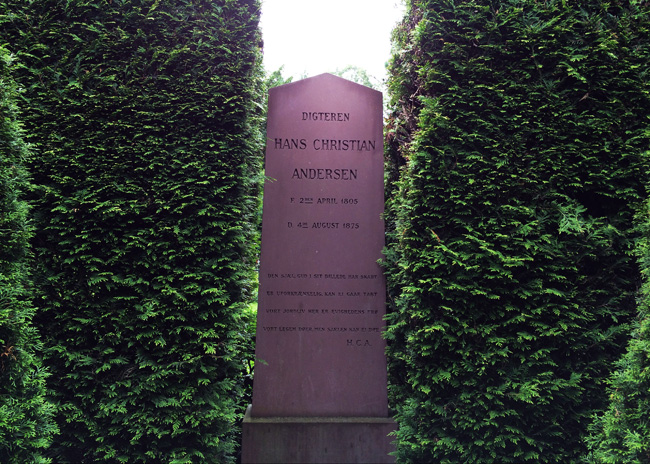
One tourism highlight of the district is Assistens Cemetery, which doubles as a park. (Hans Christian Andersen and philosopher Søren Kierkegaard are both buried there.) Apparently the Danes aren’t too freaked out by dead people underfoot, so a cemetery that’s also a public use greenspace is no big thing. It isn’t the slightest bit creepy, and joining the locals for a picnic with Hans Christian feels right. Just watch out for joggers.
Tivoli Gardens
An amusement park in the middle of the city? Across the road from the main train station? That’s Tivoli Gardens. Retro in the strictest sense, it’s a step back in time, but without the rickety structures and loose definitions of safety. This, the second-oldest amusement park in the world, was opened in 1843.
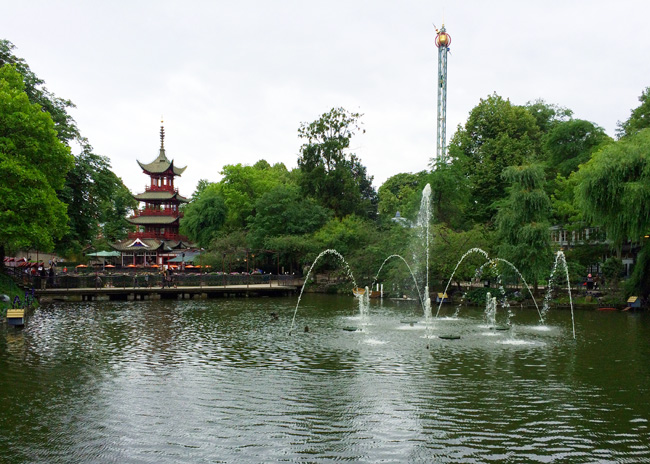
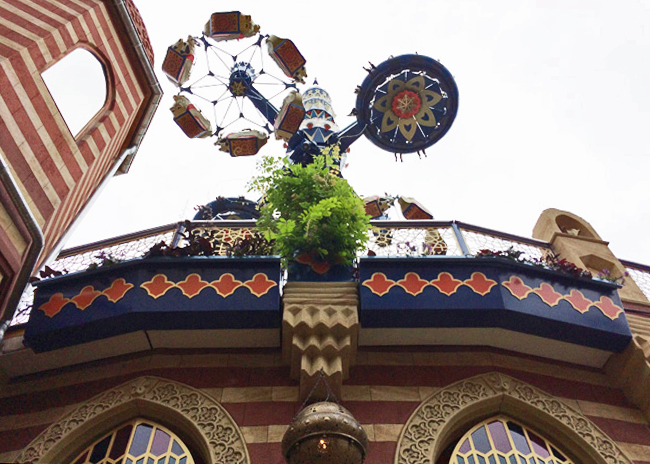
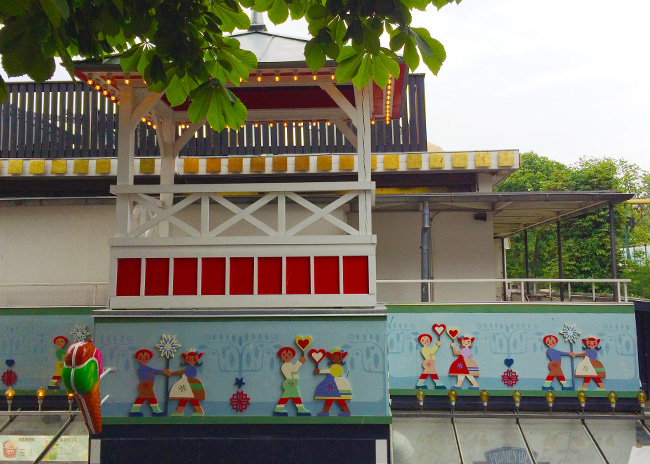
Tivoli Gardens closes for winter, so if you want to ride the Alpine mountain, you’ll have to visit between April and September. And trust me, it’s worth it.
Nyhavn – Central Copenhagen
I’ll just let the photos do the talking for this canal-side neighborhood.
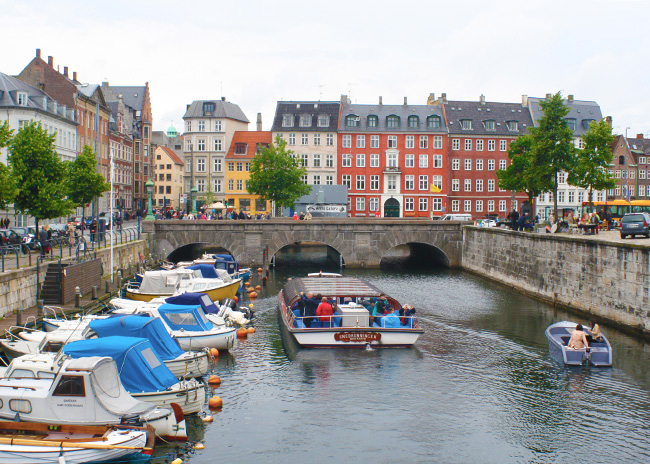
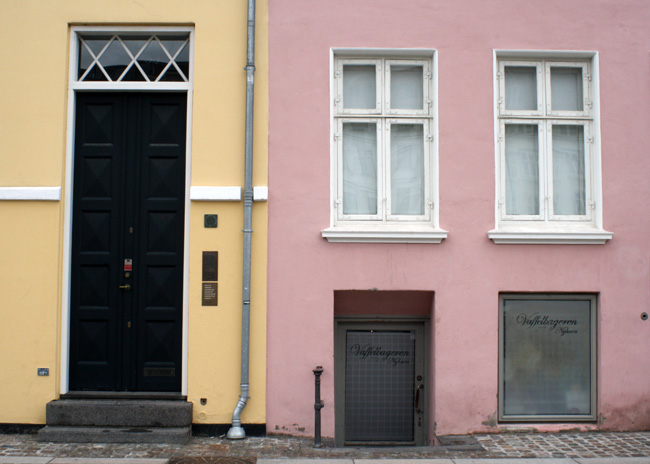
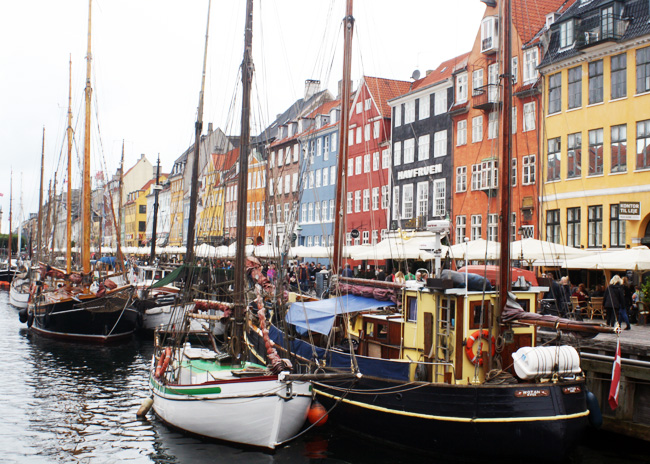
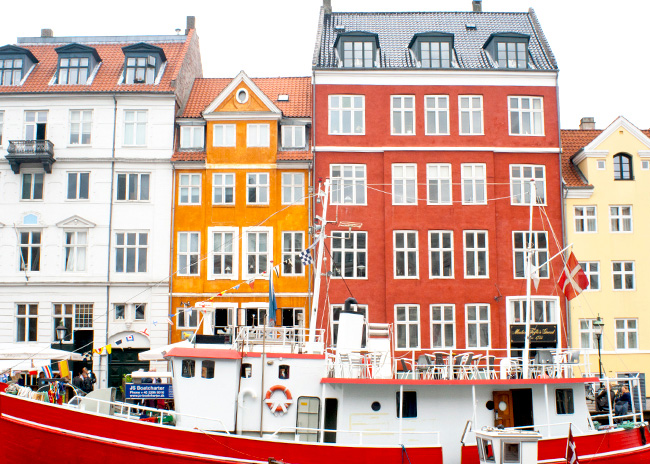
What we ate and drank in Copenhagen
Three and a half days in the city is not enough for a comprehensive culinary tour, but here are some of the highlights in Norrebro, and the rest of Copenhagen.
Baest
Baest is an organic and local product focused Italian restaurant in a fantastic corner of Nørrebro. They make wood fired pizza that’s heavy on toppings. There’s a micro-dairy on site, meaning fantastic freshly made mozzarella and burrata.
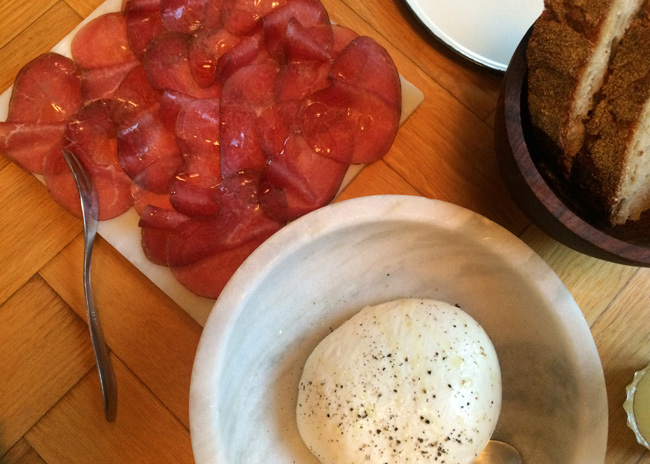
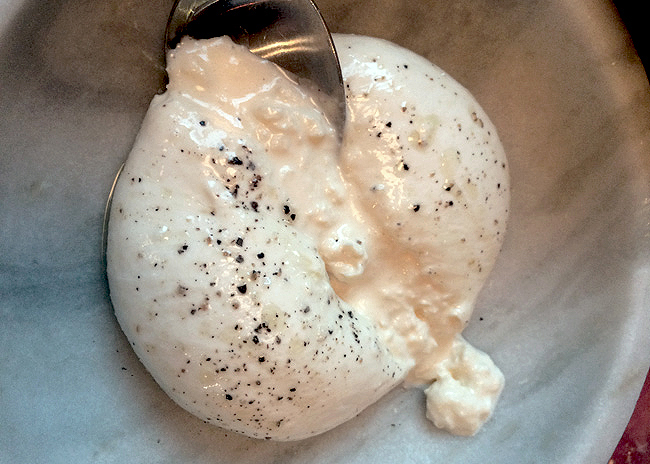
Locally cured meat from animals of one specific Danish farm are also ready for sampling. It is a pizza place, but honestly I don’t feel that’s the main draw. You could even skip it and stick to the charcuterie and cheeses. They’re the real stars. We had a lean bresaola bursting with meatiness and creamy, rich burrata.
If I were to go again, I’d go all in on the charcuterie and cheese. Maybe it’s because my mushroom and pesto pizza was a bit heavy on the toppings?
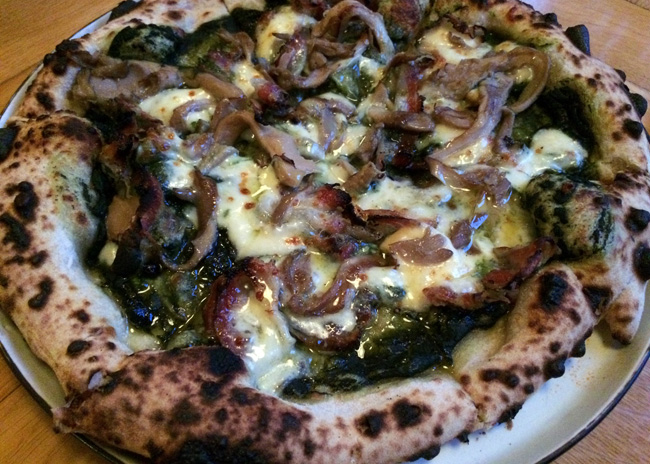
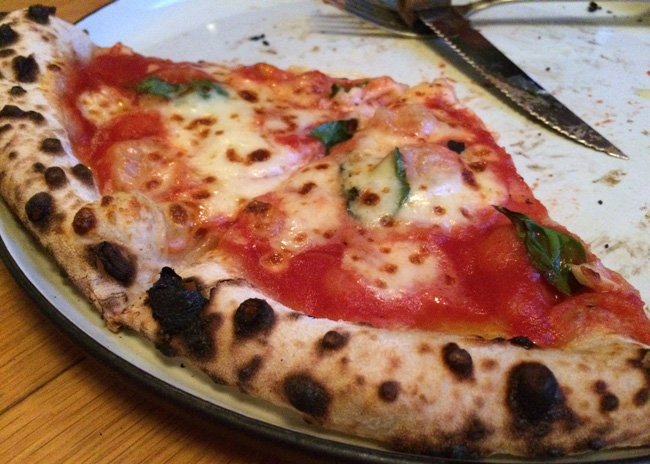
Beer (and food)
Just across from Baest is Tapperiet Brus, a bar and bottle shop from the team behind (brilliant) gypsy brewery To Øl and the Mikkeller bar Mikropolis. (More on them below.) Housed in an old iron foundry and train factory, it’s a modern, airy space with plenty of brushed steel and great beers and cocktails. The people working there are friendly and knowledgeable, the drinks selection was so good, and they’re branding is pretty great. What can I say, I’m a To Øl fangirl.
Brus shares a home with Restaurant Spontan, whose chef won a Michelin star at his previous residence. Spontan offers carefully considered dishes, the freshest and most beautiful ingredients, plus a distinct lack of fussy white tablecloth service meant this was the culinary highlight of our time in Copenhagen. Oh, I can’t forget their beer pairing menu, including a range of styles from around the world.
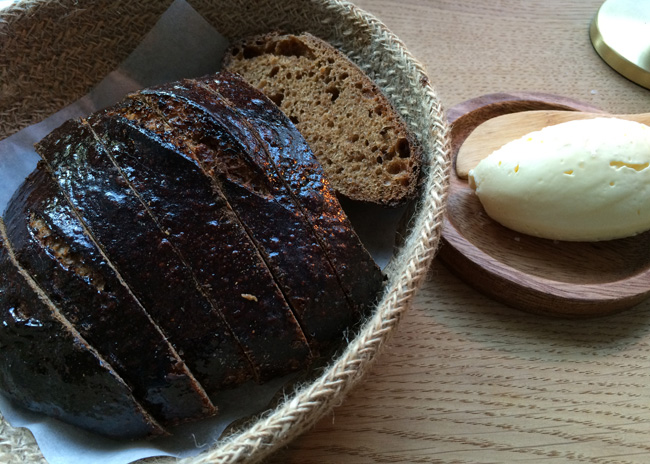
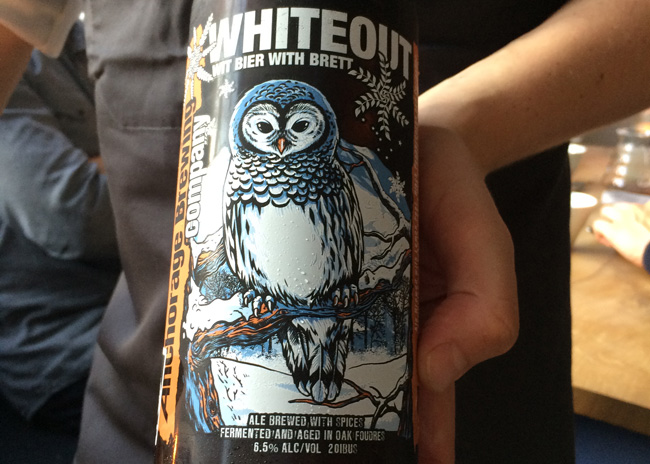
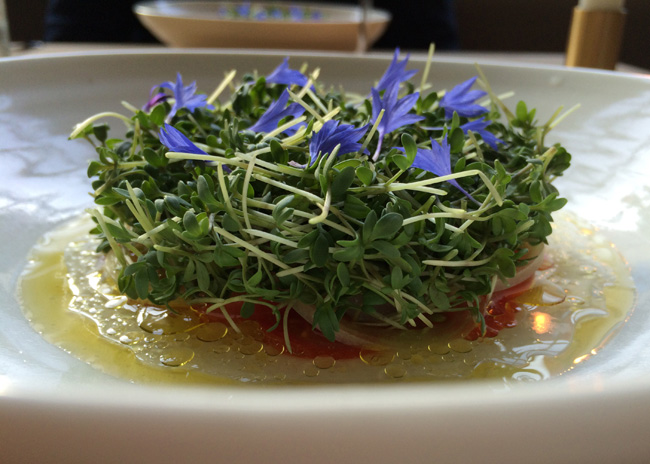
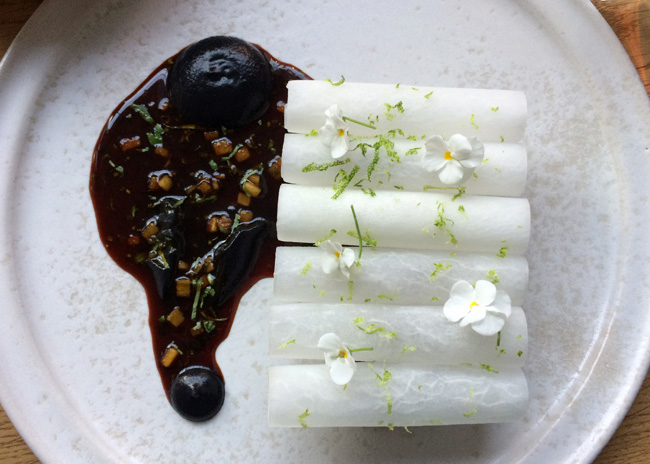
Mikkeller is probably the second-best known brewery from Copenhagen. (You’ve heard of Carlsberg, right?) Experimental flavors and styles are a signature of Mikkel Borg Bjergsø’s brews. You probably won’t find Black, their 18.8% imperial stout, at your typical local bar.
But getting your hands on a Mikkeller beer is easy in Copenhagen. If you’re there for beer, it would be hard to avoid, in fact. They currently have 8 bars, 3 restaurants and a bottle shop dotted around the Danish city, including a brand new spot called Haven.
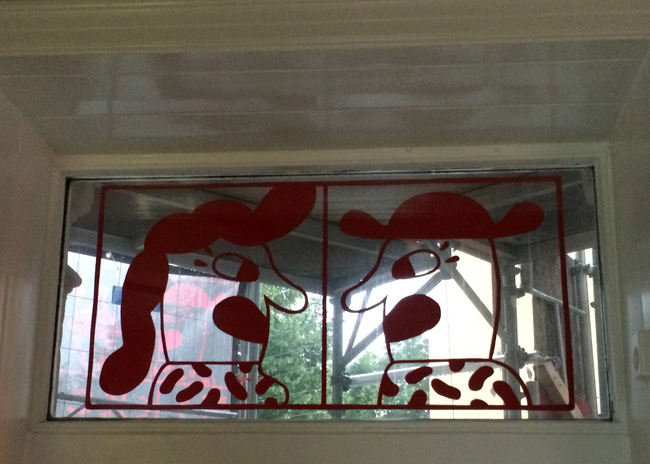
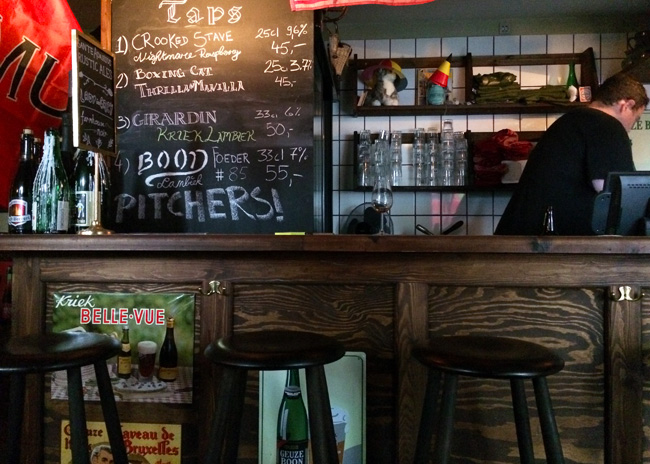
Some of the highlights include their old-timey looking sour beer bar Koelschip, a “tribute to Belgian beer” and the neighboring Mikkeller & Friends, and the bright, colorful Mikkeller Bar in Vesterbro, I’m kicking myself that we didn’t try Øl & Brød (beer & bread), their smorrebrød-focused spot.
Speaking of Mikkeller and food…
Ramen tu Bíiru (Ramen and Beer)
Mikkeller also has a spoon in the city’s ramen trade. Modeled after quirky ramen spots in Japan, at Ramen tu Biiru you place an order via a “ramen vending machine”. It then prints a receipt that you take to the counter. It’s a little labored, but bear with it.
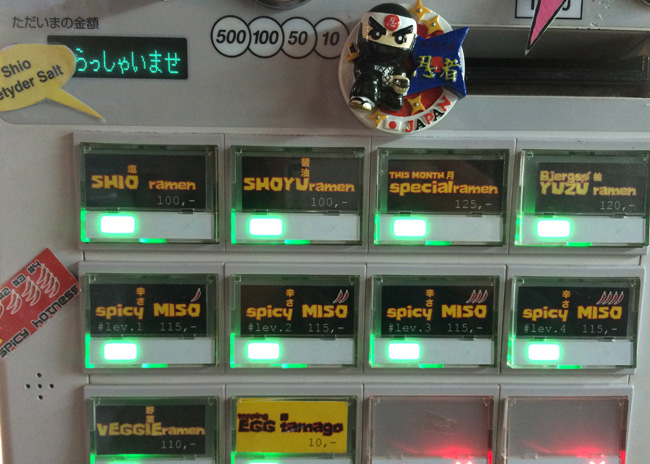
Bench seats in a small and very popular spot mean this isn’t the place to dawdle over your slurpy noodles. The ramen, by the way, are actually good. It’s not at the level of choosing the tenderness of your noodles, but they do offer rich, satisfying bowls of umami and warmth. Considering this is technically a brewery doing ramen, it was hard to know what to expect.
The menu includes shio, shoyu and miso ramens – so both meat-lovers and vegetarians are accommodated for – and a range of Mikkeller beers chosen for their ramen matching abilities. Mikkeller also has an eponymous beer specially created to complement the soupy noodle bowls.
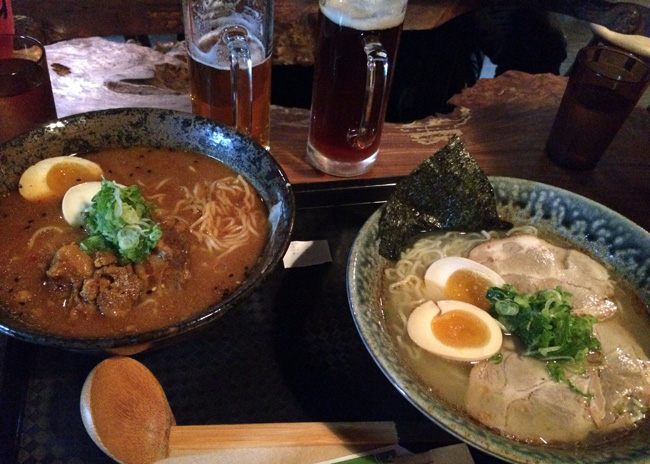
The original is in Vesterbro. We didn’t stop in, so I can’t say if it’s less busy than the Norrebro outpost.
Smørrebrød
Dense, moist rye bread is buttered and topped with pickled or fried fish, pate, cold meats or cheese, plus plenty more toppings.
This is what I looked forward to trying most. But open-faced sandwiches (Smørrebrød – stuff on bread) were not the revelation I’d hoped for. I only experienced a 50% success rate for smørrebrød enjoyment.
Skip the central market’s huge line and carve time in around midday for Rita’s Smørrebrød. With a deli-style counter and about 3 seats, this is where the locals go for lunch. And I’m not kidding – get there early because the sandwiches move quickly. This isn’t a fancy place, and a lot of their stuff-on-bread isn’t the most Instagrammable. But you’re not the kind of person who lets that stop you from eating something … right?
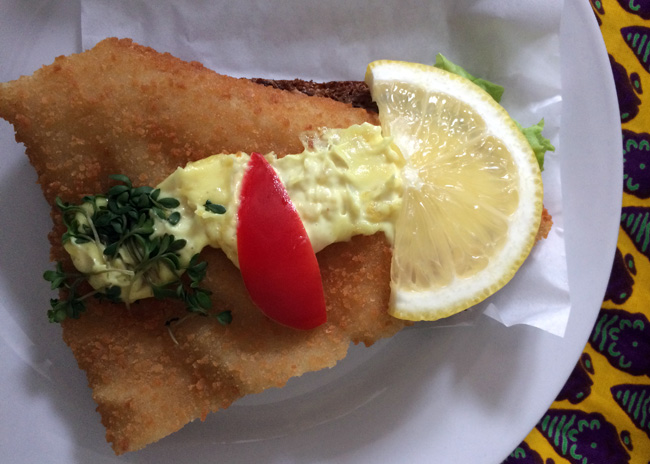
Hot dogs
Hot dogs: the street food of Denmark. In true Copenhagen style, the best hot dogs are traditional with a twist.
Døp is an organic hot dog stand offering franks made from a range of sustainable meats, and even vegan ‘meat’ in a sourdough bun. Choose your sausage, then your bread and finally your toppings. Ever had kale on a hot dog? Why not?
I had the goat hot dog, and as someone who likes goat, I thought it was … delicious.
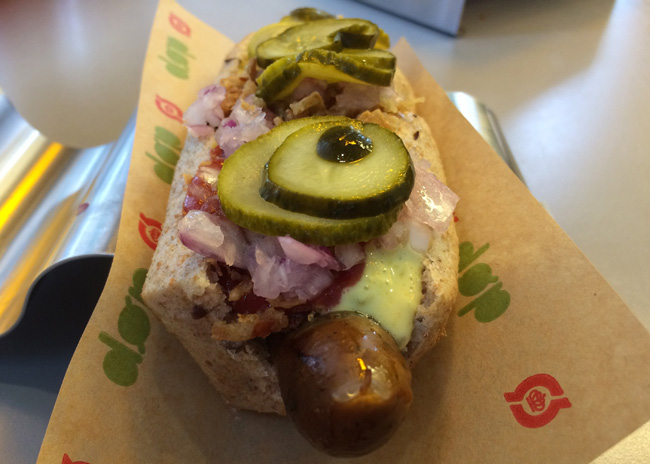
John’s Hotdog Deli is a food truck outside of the city’s main train station, and just across from Tollhavn. I know it’s not the most inspirational location but it’s just good business sense. Can you imagine a more practical place for a hot dog? Stop for a quick bite if you’re catching a train or visiting Tivoli Gardens. Truly worlds better than the hot dogs you’ll find inside the park, it’s worth the early lunch.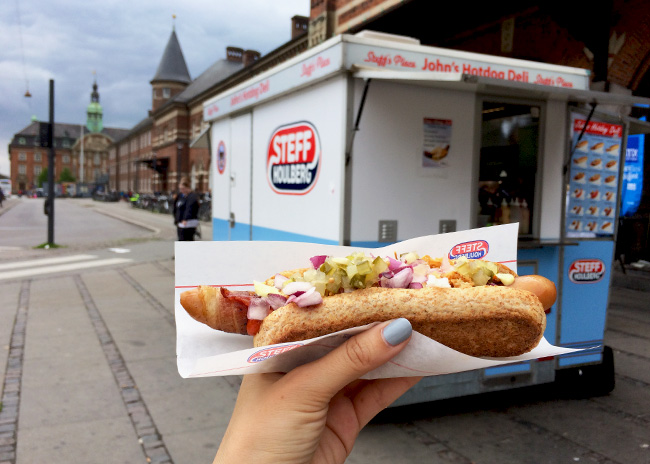
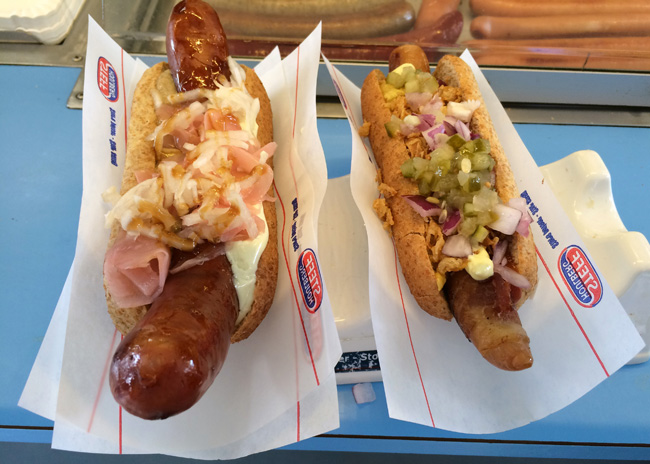 Papirøen’s food market
Papirøen’s food market
Before Papirøen’s (Paper Island) reincarnation, the island housed a series of paper storage warehouses, hence the name. The neighboring science and tech museum Experimentarium would be a good place to take kids or adults who love hands-on exhibits.
Copenhagen Street Food is a range of international food stalls based in one of the once-abandoned halls. From doughnuts to duck burgers, pig out to your heart’s (or wallet’s) content.
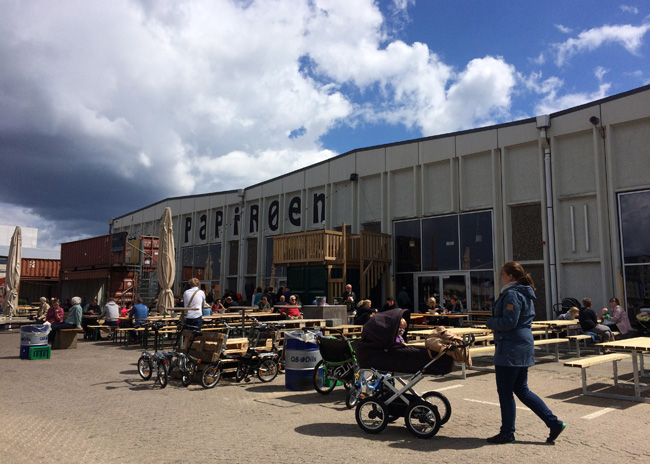
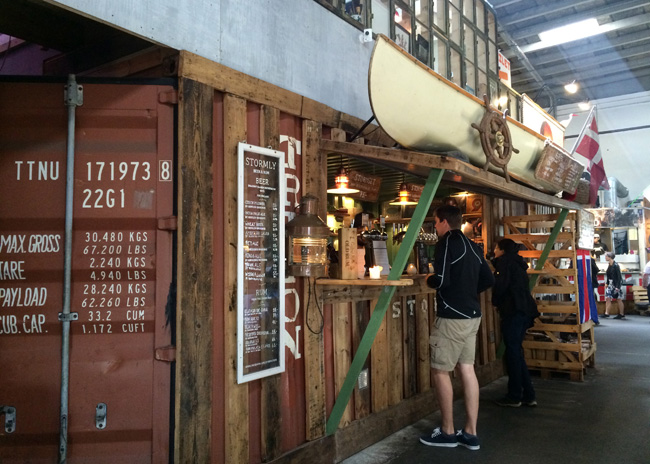
Also worth a mention…
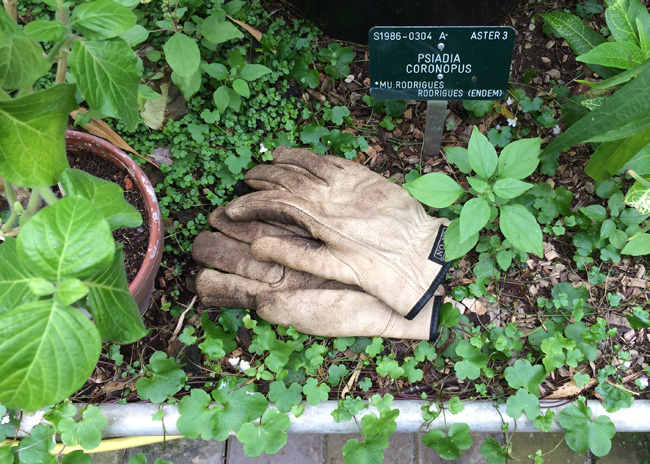
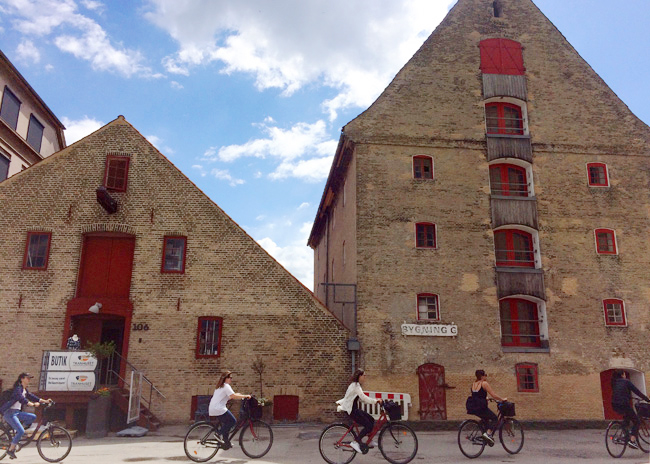
Mother is often referenced as the best pizza in Copenhagen, but we didn’t have a chance to try it. Next time.
The Coffee Collective – they have a few cafes around town with a focus on the beans and the farmers who grow them.
Botanical Garden. With a mix of indoor greenhouses and leafy green outdoor paths, this is a great place to visit if you get caught in one of Denmark’s rain/sun/rain/sun events. It’s beautiful.. and free!
Cycling. The traffic system for bicycles is the most organised and safest-looking I’ve ever seen, even compared to Amsterdam. If you like cycling (I don’t, to be honest), rent a bike and become one with Copenhagen. Some Airbnb hosts even let guests borrow their bicycles.
If you have time and don’t need a visa, take the 30 minute train to Malmö for a day in Sweden. Fans of The Bridge would especially get some joy out of it.